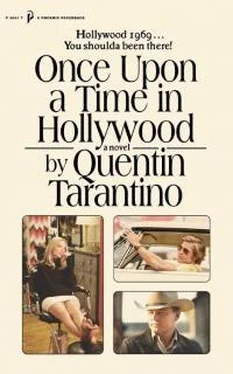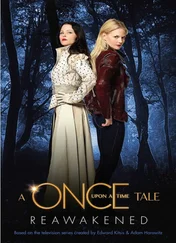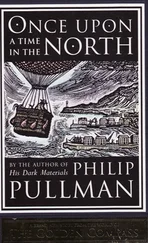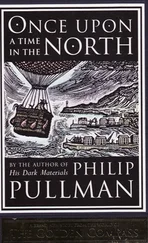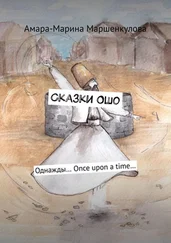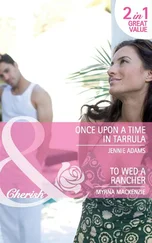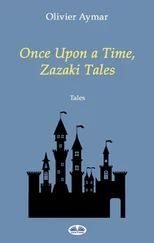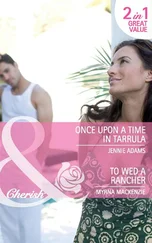As the actor walks in his costume and his boots down the dirt main street, surrounded by Wild West–type businesses (livery stables, general stores, a coffin maker, a fancy hotel, a shitty hotel), he starts getting a feel for Caleb DeCoteau.
In the pilot, Caleb was the leader of a gang of bloodthirsty cattle rustlers—which the show referred to by the fancy moniker of “land pirates”—who’d moved into the Royo del Oro territory, poaching the cows of the biggest cattle rancher in the valley, Murdock Lancer, at will. And with no law in the town to speak of, the nearest federal marshal over a hundred and fifty miles away, and nothing but old man Lancer and a few Mexican ranch hands to shoo them off, that situation didn’t look like it was going to change anytime in the near future. However, as if the unabated poaching of Murdock Lancer’s cows wasn’t bad enough, events had recently taken a turn for the lethal worst, with Caleb sending snipers at night to rain rifle fire upon the Lancer Ranch house (where Murdock’s precious eight-year-old daughter, Mirabella, slept) and the bunkhouse (where the ranch hands slept), resulting in the murder of George Gomez, the Lancer Ranch ramrod and Murdock’s oldest friend, and scaring off a quarter of Murdock’s men.
Murdock Lancer was desperate. And desperate times called for desperate measures. It would appear Murdock’s only alternative would be to hire a bunch of cutthroats of his own and engage in a bloody ranch war, which would leave many men dead (not to mention put his daughter in harm’s way). Not only did Murdock feel his money was not meant to finance murder (even scum like the men of DeCoteau), ultimately old man Lancer felt the murder of men wasn’t worth the price of bovine.
So instead of doing the obvious, Murdock Lancer took a turn toward the unique.
The old man had two sons by two different mothers (shades of Bonanza ), who he hadn’t seen since they were children. And if their reputations could be trusted, both men seemed more than capable when it came to handling firearms.
The oldest of the two, Scott Lancer , was the most impressive in the old man’s eyes, educated inside the hallowed halls of Harvard and raised in wealth, culture, and honor by the Fosters, his mother’s distinguished Boston family.
Currently, in Murdock’s opinion, he was pissing away that pedigree by living the life of a riverboat gambler. There were also rumors of him killing the son of a United States senator in a pistol duel over the compromising of the honor of a beautiful Southern belle.
However, the young man had a distinguished military career, riding with the British Cavalry in India. When he left Calcutta and set sail for home, he returned with two medals for bravery in the face of the enemy and a limp in his right leg.
John Lancer, Murdock’s youngest boy, was another case entirely. The last time Murdock saw him was when the boy was ten years old. After his mother, Marta Conchita Louisa Galvadon Lancer, had sex with one of her husband’s ranch hands, she took their young son and fled into the night. Marta was a tramp the way other people are drunks. It was what she was but not necessarily what she wanted to be. But like a true honest-to-goodness drunk on the wagon, she might lay off her prowess at seduction and her susceptibility to same for a week or two, or a month or two, or a year or two, but her eventual fall was inevitable. In Marta’s case, as Murdock Lancer’s wife and John Lancer’s mother, she laid off for ten years (after the birth of her son). But, eventually, the time came where she gave in to her true nature.
The first time Marta saw handsome Lazaro Lopez astride a saddle, roping steers, she knew her fall from grace, wealth, and position was simply a matter of time. Marta might not have loved her husband, but as Tina Turner was later to sing, “what’s love got to do with it?” Fifteen-year-old girls fall in love with stable boys, who don’t have a pot to piss in or a window to throw it out of, when wealthy landowners would gladly trade twelve good horses for their hand in marriage. Love is for young girls with their brains in their ass. What Marta felt for Murdock was far more meaningful: respect .
When she humiliated him in his home, in the eyes of his men, she pulverized the thing that made his spine stand straight, his pride. She had played house for ten years, but now he saw her for what she was. A filthy whore who could not be trusted. When he confronted her with her treachery, she saw in his eyes that the life they had created together on the Lancer Ranch was destroyed. Even if he did forgive her, he’d never forget. But even more catastrophic was the respect in herself she’d lost and would never regain. Murdock Lancer had his problems, but he was a good man. And he didn’t deserve a tramp who’d toss away the life he gave her for no better reason than a roll in the hay with some cocksure bronco buster. So once her husband went to sleep, she took their ten-year-old son and the buggy Murdock had given her for her twenty-eighth birthday and ran off to Mexico.
In the border towns of Mexico, she could stop pretending to be something other than what she was born to be. Unbeknownst to their little boy, Murdock spent five years searching for his runaway wife and young son. All to a fruitless outcome. After a dissatisfied customer slit her throat two years later in the back room of an Ensenada cantina, Marta finally received the peace she’d craved since her transgression. Her self-degradation could come to an end, her husband’s pride could finally find restitution, and her son could finally be rid of the weight tied to his ankle that dragged him down to the lower depths of humanity. Since Jesus Christ was the only one who knew how badly she felt about what she had done, maybe he’d forgive her like he always promised he would. Then she could finally leave behind the shacks, cantina back rooms, and whorehouses. A paradise, where her sins would be washed away, was what lay before her (if this whole Jesus business was to be believed).
In some ways, Marta Lancer was the more fortunate one, because Murdock never found peace with his sons lost to him. The old man felt terrible bitterness toward his first wife, Diane Foster Lancer, for her weakness and lack of fortitude. Making vows in the eyes of God at their wedding ceremony she hadn’t the strength of character to keep. To keep a promise was a test of one’s self. A test that these women he brought into his life failed and failed horribly. But at least in Scott’s case the old man knew he was safe, secure, and well fed. He might grow up a dude as opposed to a cattleman and the heir to a self-made empire, but at least he would be well looked after by his China-plate Beacon Hill relatives.
But poor John—God only knew what he’d lived through. After five years of searching, one of Lancer’s Pinkerton detectives finally located Marta Galvadon Lancer’s final resting place in a boot-hill graveyard in Ensenada, Mexico. It was obvious that the wooden cross and her name carved on the board was carved by her surviving twelve-year-old son. The old man journeyed to Ensenada. The last record of his son was his appearance at the murder trial of her killer, a Mexico City citizen of wealth and prestige. The affluent Mexican was acquitted under prejudicial circumstances by the biased jury, who seemed to have it in for Marta. The throat-slitting parasite could have set Marta on fire and that jury wouldn’t have found him guilty. And though Murdock continued to search for the boy, all his efforts were in vain. When Murdock Lancer signed his last check to the Pinkerton detective agency, it was with the bitter resolve that his son was dead. And that, apparently, was that.
It was sometime around fifteen years later that the reputation of a deadly half white/half Mexican gunfighter named Johnny Madrid reached the ears of Californians. The reputation was that of a scoundrel, but a scoundrel with lightning-fast prowess with a pistola. From the accounts of eyewitnesses and dime-store pulp writers, he had the quickness in killing of Tom Horn, the accuracy of aim of Annie Oakley, the nasty disposition of John Wesley Hardin, and the lack of human empathy of William H. Bonney . He was one of the most feared killers who rode the Mexican side of the border, known by the peons in the pueblos he passed through as El Asesino de Rojo (translation: “The Murderer in Red”), due to the fancy red ruffled shirt he always wore.
Читать дальше
